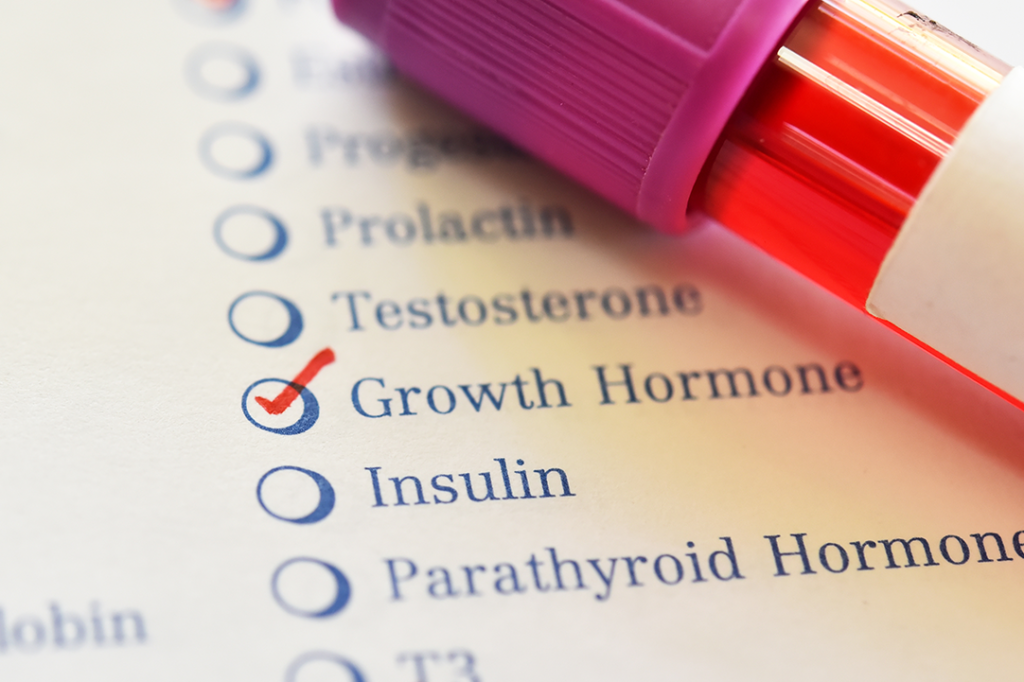In a new study, researchers investigated the plasma growth hormone as a potential biomarker of response to atezolizumab and bevacizumab in advanced hepatocellular carcinoma patients.

The Trending With Impact series highlights Oncotarget publications attracting higher visibility among readers around the world online, in the news, and on social media—beyond normal readership levels. Look for future science news about the latest trending publications here, and at Oncotarget.com.
—
Hepatocellular carcinoma (HCC) is a highly aggressive cancer of the liver with a very poor prognosis; many patients pass away within a year of diagnosis. Currently, there is no effective screening method for HCC and thus, 80% of patients are diagnosed at advanced stages. This makes treatment difficult and often unsuccessful. As a result, new treatments for HCC are constantly being explored.
Atezolizumab and bevacizumab are two standard therapies used to treat unresectable, advanced HCC. However, researchers Yehia I. Mohamed, Dan G. Duda, Muhammad O. Awiwi, Sunyoung S. Lee, Lina Altameemi, Lianchun Xiao, Jeffrey S. Morris, Robert A. Wolff, Khaled M. Elsayes, Rikita I. Hatia, Aliya Qayyum, Shadi M. Chamseddine, Asif Rashid, James C. Yao, Armeen Mahvash, Manal M. Hassan, Hesham M. Amin, and Ahmed Omar Kaseb from MD Anderson Cancer Center, Massachusetts General Hospital, Harvard Medical School, Michigan State University, and University of Pennsylvania Perelman School of Medicine noticed a significant gap in research on biomarkers of response in advanced HCC patients treated with atezolizumab plus bevacizumab. The team conducted a new study aimed at beginning to close this gap. On December 6, 2022, their research paper was published in Oncotarget’s Volume 13, entitled, “Plasma growth hormone is a potential biomarker of response to atezolizumab and bevacizumab in advanced hepatocellular carcinoma patients.”
“This study investigated the biomarker value of plasma growth hormone (GH) level as a potential biomarker to predict outcome in unresectable HCC patients treated with current standard therapy, atezolizumab plus bevacizumab (Atezo/Bev).”
The Study
Plasma growth hormone (GH) is a potential biomarker that had not previously been evaluated in relation to this treatment regimen in HCC before. In this study, the researchers included 37 patients with advanced HCC. The patients received atezolizumab plus bevacizumab at the MD Anderson Cancer Center between June 2018 and November 2021. The median age of the patients was 67 years old, and the vast majority were male (83.8%).
The team measured plasma GH levels, progression-free survival (PFS) and overall survival (OS). Plasma GH levels were measured by ELISA and used to stratify the HCC patients into GH-high and GH-low groups. The Kaplan-Meier method was used to calculate median OS and PFS. The Log-rank test was used to compare survival outcomes between GH-high and -low groups.
“To the best of our knowledge, this is the first study to assess clinical prognostic value of plasma GH level in patients who have received atezolizumab plus bevacizumab in clinical setting.”
The results of the study showed that plasma GH levels significantly correlated with OS. At the time of the analysis, the one-year survival rate was 70% among GH-low patients and 33% among GH-high patients. OS was significantly superior in GH-low compared to GH-high patients. PFS showed a non-significant trend in favor of GH-low patients compared to the GH-high group.
Conclusion
“Despite the small data size, plasma GH levels were strongly predictive of the disease outcome in patients treated with Atezo/Bev.”
The study concluded that plasma GH levels may be a promising biomarker for predicting response to atezolizumab plus bevacizumab in advanced HCC patients. Further, plasma GH levels may be used to stratify advanced HCC patients into high- and low-risk groups. The researchers recommend further research in larger scale and different populations to validate the findings and explore plasma GH levels as a potential biomarker of response to this treatment regimen in HCC.
“In conclusion, our study demonstrate[s] that plasma GH represents a candidate biomarker for predicting treatment outcomes in patients with advanced HCC treated with Atezo/Bev. Future studies in larger randomized clinical trial and with a more diverse ethnic, race, and gender background are warranted to further validate these findings.”
Click here to read the full research paper published by Oncotarget.
ONCOTARGET VIDEOS: YouTube | LabTube | Oncotarget.com
—
Oncotarget is an open-access journal that publishes primarily oncology-focused research papers in a continuous publishing format. These papers are available at no cost to readers on Oncotarget.com. Open-access journals have the power to benefit humanity from the inside out by rapidly disseminating information that may be freely shared with researchers, colleagues, family, and friends around the world.
For media inquiries, please contact media@impactjournals.com.
